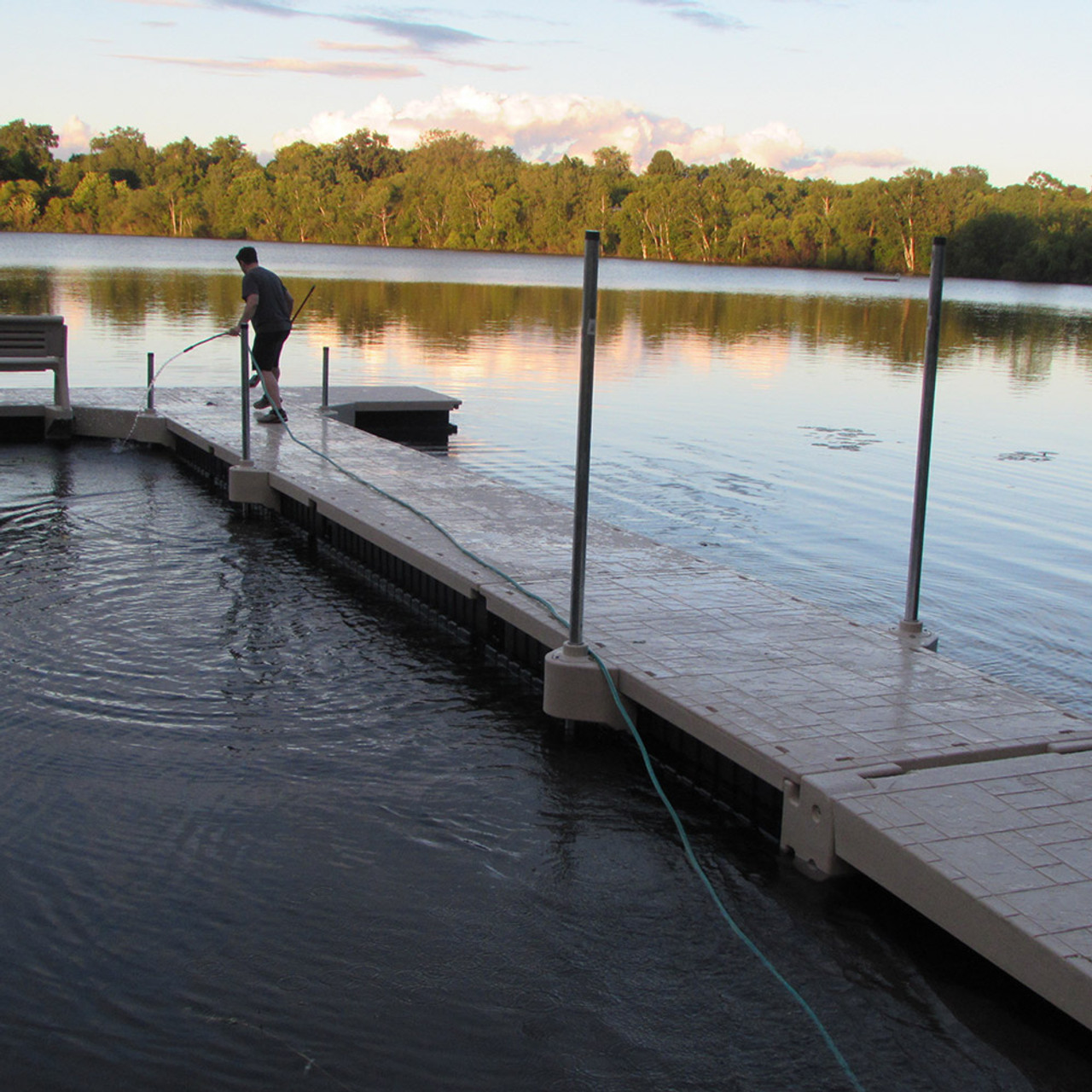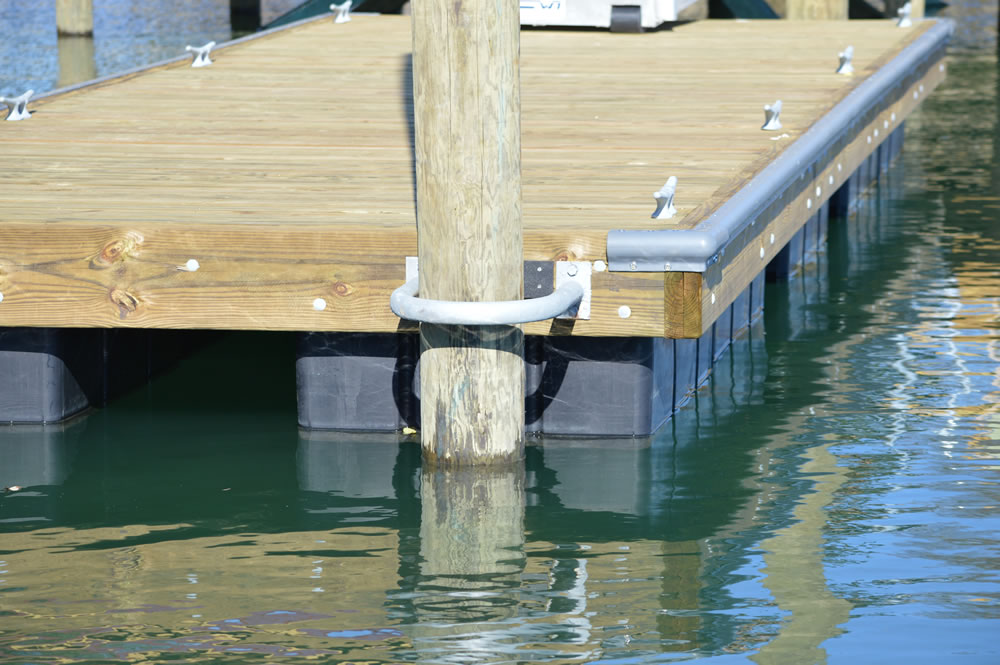Enhance Your Water Experience with Personalized Floating Docks Designed for Your Way of living
The Ultimate Guide to Selecting the Ideal Floating Docks
Choosing the suitable floating dock needs a thorough understanding of various components that affect both performance and long life. Elements such as dock types, products, and vital features significantly affect your decision-making process. Considerations around installation and budget can better make complex the selection. By examining these facets systematically, one can guarantee an investment that not only satisfies instant requirements however likewise boosts total home value. As we check out these critical parts, it ends up being clear that the appropriate selections can lead to a enduring and practical option tailored to your specific requirements.
Comprehending Floating Dock Kind
When selecting a drifting dock, it is necessary to comprehend the numerous types readily available, as each offers distinct objectives and applications. Floating docks primarily fall under three categories: modular, fixed, and pontoon docks.
Modular docks are composed of private areas that can be easily constructed or reconfigured, making them perfect for altering water degrees and diverse usages, such as recreational tasks or industrial procedures. Their adaptability permits modification based upon specific needs.

Pontoon docks are characterized by their resilient structure, frequently made up of several pontoons that provide stability and assistance. They are especially appropriate for larger vessels and are generally made use of in marinas or for waterside homes. Understanding these kinds help in selecting one of the most appropriate floating dock to fulfill specific requirements, making certain optimal capability and safety.
Key Products for Longevity
Choosing the appropriate products for floating docks significantly influences their toughness and long life. One of the most usual materials consist of wood, plastic, steel, and composite materials, each offering unique advantages and restrictions.
Timber, typically preferred for its aesthetic charm, calls for routine upkeep to withstand moisture and decay. Pressure-treated lumber can enhance resistance to rot, but it might still be prone to bugs and weathering.

Plastic docks, made of high-density polyethylene (HDPE), are immune to corrosion, UV radiation, and impact, making them a popular selection for coastal environments. Their light-weight nature also assists in simple installment and relocation.
Steel docks, commonly built from light weight aluminum or galvanized steel, provide outstanding strength and resilience. They are immune to deterioration, particularly when treated, however might need additional insulation to avoid warm build-up in hot climates.
Composite materials, incorporating wood fibers and plastics, supply the advantages of both timber and plastic, standing up to moisture and fading while requiring minimal upkeep. - floating dock services
Eventually, the choice of products ought to align with ecological problems, planned usage, and upkeep preferences to guarantee the floating dock continues to be functional and aesthetically pleasing over time.
Crucial Features to Think About
While the selection of products is important, considering crucial functions for floating docks is just as crucial to ensure ideal efficiency and customer fulfillment. One key attribute to evaluate is the dock's buoyancy capability, which identifies exactly how much weight it can sustain without immersing. floating dock services. This is vital for suiting boats, go to these guys personal boat, and also entertainment tasks
Furthermore, portability is a significant factor to consider. Depending on your requirements, you may want a dock that is very easy to take apart and move, especially if you intend to move it seasonally. Stability is one more essential function; a well-designed floating dock needs to lessen activity brought on by wind and water currents, giving a protected system for individuals.
Security functions, such as non-slip surface areas and rounded sides, are also vital to stop mishaps, particularly in damp conditions. Moreover, consider the availability of accessories, such as bumpers, cleats, and ladders, which can improve the performance of your dock.
Setup and Upkeep Tips
Setting up and maintaining a drifting dock requires mindful planning and interest to information to ensure its durability and optimum performance. Begin by picking an appropriate area that reduces direct exposure to solid currents and waves, which anchor can trigger wear and tear. Guarantee that the water depth suffices for the dock's height and that it is anchored securely to protect against motion.
During installation, comply with the supplier's standards closely, as inappropriate assembly can endanger security. Use premium products resistant to corrosion, such as aluminum or treated wood, to enhance durability. Consistently evaluate all components, including floats, adapters, and securing systems, for indications of damages or wear.
If your dock uses flotation protection devices, ensure they continue to be totally free and intact from punctures. By sticking to these setup and upkeep suggestions, you can appreciate a useful and trustworthy floating dock for years to come.
Budgeting for Your Dock
Budgeting for your dock is an important step that can dramatically affect your overall satisfaction and investment in a waterfront property. Developing a clear spending plan aids you browse the numerous alternatives readily available and ensures you make educated decisions that line up with your economic capabilities.
Begin by figuring out the size and layout of the dock you call for, as these elements will considerably affect the expense. Floating docks can vary considerably in cost, depending on products, buoyancy, and functions like ramps and accessories. try these out Research study various suppliers and suppliers to compare costs and recognize the marketplace value.
Along with preliminary costs, think about ongoing expenditures such as maintenance, insurance, and possible repairs. Allocate funds for these repeating costs to avoid shocks down the line. It's additionally prudent to budget for any kind of necessary licenses or evaluations, which may be required by regional policies.
Last but not least, keep in mind the prospective return on financial investment. A well-planned dock can improve your residential or commercial property's worth and allure, providing a positive economic impact in the long term. By budgeting successfully, you can make certain that your dock meets your requirements without compromising your monetary stability.
Verdict
In conclusion, selecting the optimal floating dock requires a thorough examination of various aspects, consisting of dock types, materials, vital functions, and installation processes. Mindful factor to consider of monetary constraints will additionally make sure an audio investment.

While the option of materials is essential, thinking about necessary attributes for floating docks is just as crucial to ensure ideal efficiency and customer contentment.Establishing up and keeping a drifting dock requires careful planning and attention to information to guarantee its long life and ideal efficiency. Floating docks can vary substantially in rate, depending on materials, buoyancy, and attributes like accessories and ramps.In verdict, picking the optimal floating dock necessitates a detailed examination of different factors, including dock types, materials, essential features, and installment procedures.